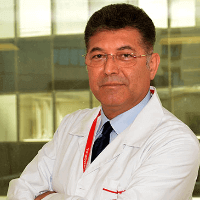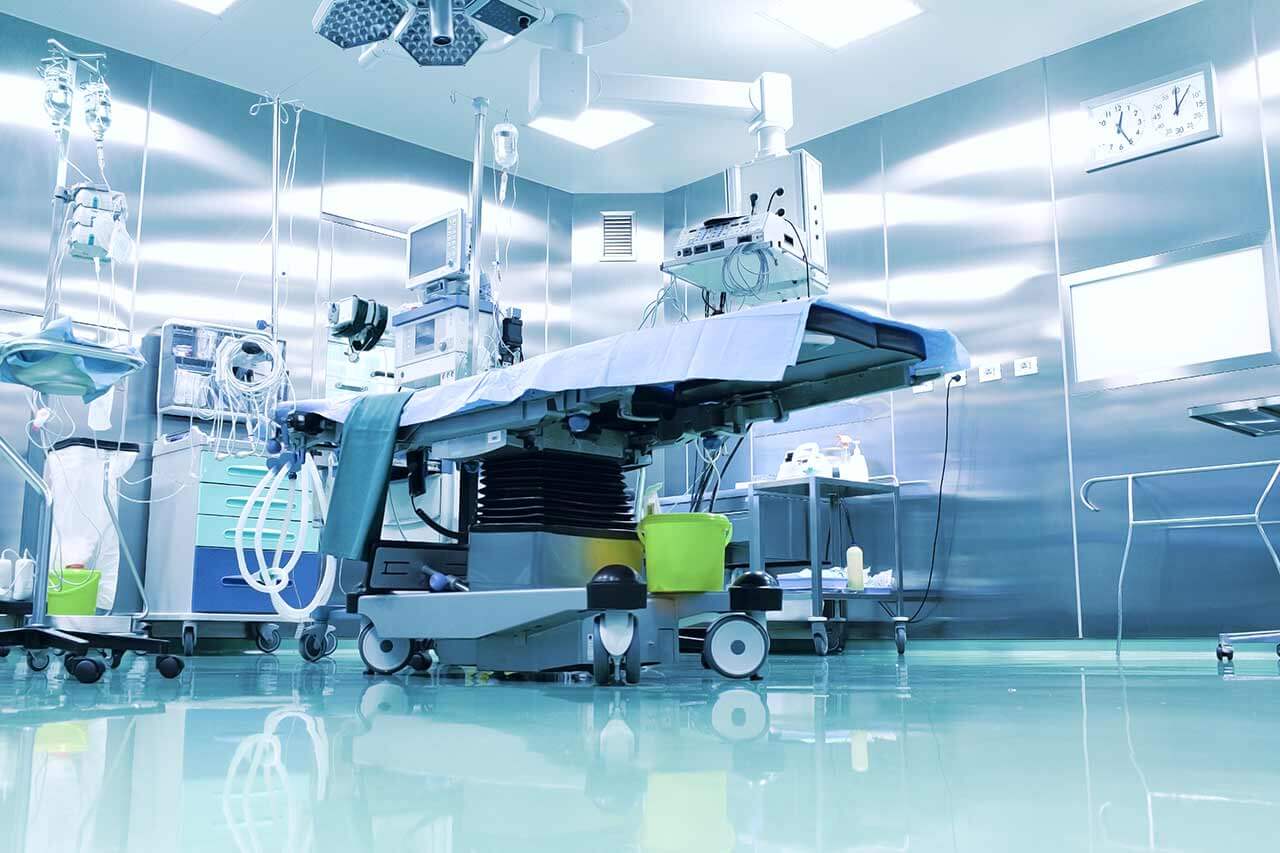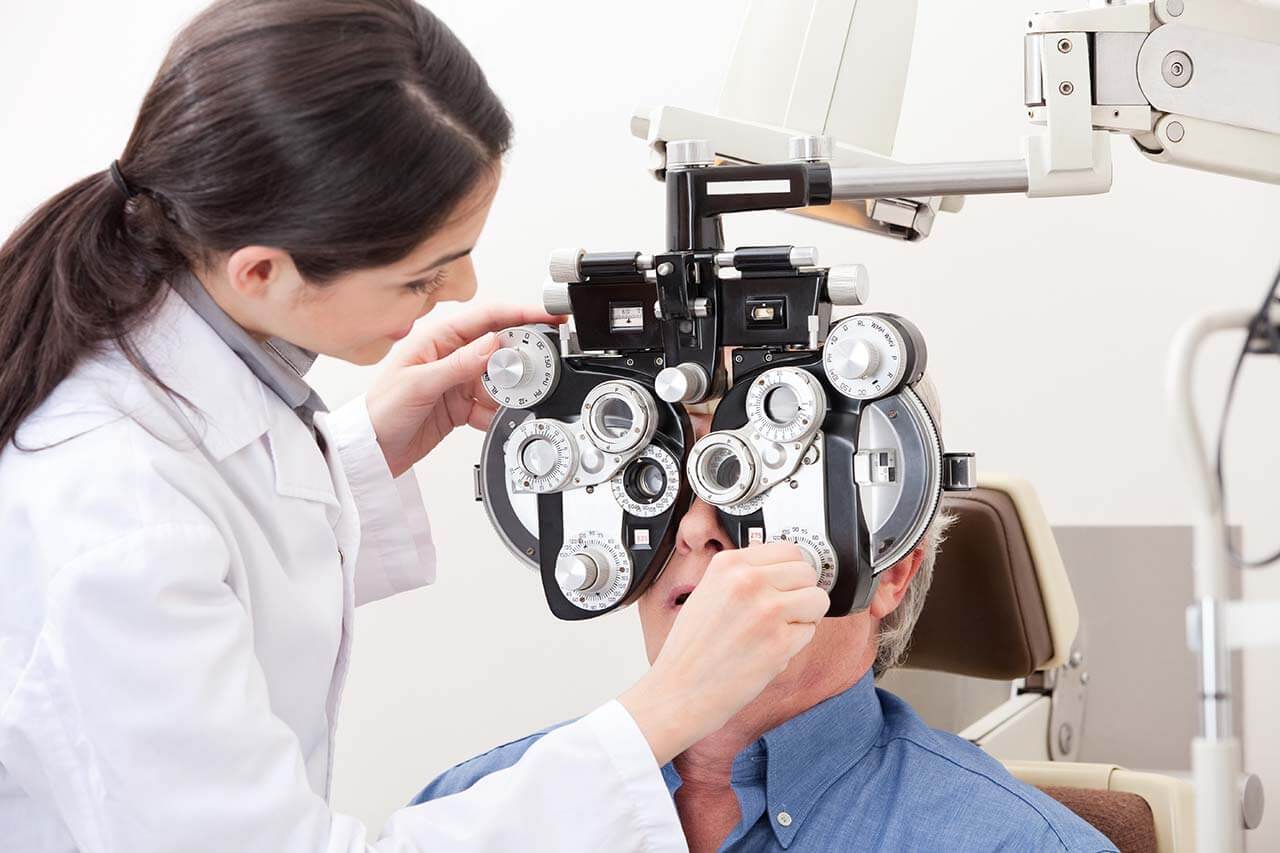
The program includes:
- Initial presentation in the clinic
- case history collection
- general clinical examination
- laboratory tests:
- complete blood count
- biochemical analysis of blood
- TSH-basal, fT3, fT4
- differential blood count
- inflammation indicators (CRP, ESR)
- indicators of blood coagulation
- abdominal ultrasound scan
- CT/MRI scans of the whole body
- needle biopsy of the bone marrow with histological:
- cytochemistry
- immunocytology
- cytogenetics (Philadelphia
chromosome detection) - molecular biology
- biopsy and histological examination of CSF
- examination by experts of:
- cardiology
- otolaryngology
- immunology
- ophthalmology
- registration in the European bone marrow donor base
- conducting high-dose chemotherapy
- allogeneic bone marrow transplantation from
unrelated donor - isolation by neutropenic precautions
- symptomatic treatment
- control examinations
- the cost of essential medicines and materials
- nursing services
- full hospital accommodation
- explanation of future recommendations
How program is carried out
During the first visit, the doctor will conduct a clinical examination and go through the results of the available diagnostic tests. After that, you will undergo the necessary additional examination, such as the assessment of liver and kidney function, ultrasound scan, CT scan and MRI.
Also, the doctor will conduct a bone marrow biopsy followed by cytological examination of the harvested material. This will help him to determine the histological features of your bone marrow (in particular, identify HLA system antigens) and select a suitable donor. The donor can be a family member or a person from the bone marrow registry. In the second case, the donor material is stored in a bone marrow bank.
Before the procedure, you will receive chemotherapy, if necessary in combination with radiation therapy. The course of chemo- or chemoradiation therapy lasts from 2 to 8 days.
The bone marrow transplant procedure is an intravenous infusion, i.e. the healthy bone marrow will be injected through a catheter, intravenously. You will stay in your room during the procedure. A bone marrow transplant is completely painless and does not require anesthesia.
During the period of healthy bone marrow engraftment, you will stay in a sterile ward. This is a necessary precaution because during this time your immune system is very weak and cannot withstand environmental pathogens. The risk of bleeding is also quite high, so you will be advised to avoid mechanical damage.
A relative or other close person may stay in the ward with you. You will not be allowed to go outside the department and leave your ward often. The rehabilitation period can last from 1 to 2 months.
When your complete blood count returns to normal, your doctor will schedule your discharge from the department. You will receive information about the rules that you will need to follow at home, the frequency and type of control examinations, and subsequent treatment measures. You will also receive a detailed medical report, which will reflect the entire course of treatment.
Required documents
- Medical records
- MRI/CT scan (not older than 3 months)
- Bone marrow biopsy results (if available)
Service
You may also book:
 BookingHealth Price from:
BookingHealth Price from:
About the department
The Department of Pediatric Oncology, Hematology and Bone Marrow Transplantation at the Memorial Sisli Hospital Istanbul offers the full range of diagnostic and therapeutic services for young patients with benign and malignant diseases of the hematopoietic system, solid neoplasms of various localization. The department's competence also includes autologous and allogeneic bone marrow transplantation. To provide comprehensive treatment, pediatric oncologists cooperate closely with specialists in the field of pediatric surgery, orthopedics, neurosurgery, otolaryngology, ophthalmology and others. The diagnostics is carried out in cooperation with specialists from the Department of Radiology, which has state-of-the-art imaging equipment. In addition to high-quality medical service, the department provides both young patients and their parents with competent psychological care, the attending physicians also take care of the psychological state of the children. The department is one of the best in the area of its specialization in Turkey and has an excellent reputation abroad. The Chief Physician of the department is Prof. Dr. med. Atilla Tanyeli.
The decisive factor in the treatment success is accurate diagnostics, which provides the doctors with detailed information about the type of tumor or blood malignancy, the stage of the malignant process, the location and size of solid neoplasms. When developing a treatment regimen, the age of the child and his general state of health are also taken into account.
The main treatment method for solid tumors in children and adults is surgery. The task of the surgeon is to radically remove the tumor. The surgical treatment is carried out using minimally invasive surgical techniques, which minimize the risk of postoperative complications and significantly accelerate the recovery process for young patients. In some cases, it is possible to perform surgical interventions with access through natural openings – the esophagus, the nasal passages. However, the doctors are not always able to destroy all malignant cells during surgery, so the treatment regimen can be supplemented with chemotherapy, targeted therapy, radiation therapy, immunotherapy and other methods.
Chemotherapy is the basis of the treatment protocol for lymphomas, leukemias and retinoblastomas. For chemotherapy treatment, the department's specialists use the very latest drugs, which accumulate much faster in tumor cells and do not damage healthy cells. Thus, it is possible to reduce the number of chemotherapy sessions and relieve the child of unnecessary stress. In most cases, the drug is injected directly into the tumor, using a central catheter or port system. The doctors use progressive linear accelerators for radiation therapy, which allow them to carry out high-precision focusing of the maximum dose of radiation on the target area, without harming healthy surrounding tissues.
In the case of hematological malignancies in children, bone marrow transplantation can often be the only effective treatment. The department has an excellent medical and technical base for maximum safety and efficiency of the procedure. The essence of bone marrow transplantation is the extraction of donor material from the patient (autologous transplantation) or from a donor (allogeneic transplantation), after which it is processed. The purified bone marrow cells are injected into the child through the vascular access, after which the patient is isolated in a sterile box in order to prevent the development of infections, haemorrhage and other complications.
The department's range of medical services includes:
- Diagnostics and treatment of cancers in children
- Head and neck malignancies
- Brain malignancies
- Eye malignancies (especially retinoblastoma)
- Kidney and adrenal gland malignancies
- Soft tissue and bone malignancies
- Diagnostics and treatment of malignant blood diseases in children
- Leukemias
- Myelodysplastic syndrome
- Lymphomas
- Diagnostics and treatment of benign blood diseases in children
- Anemias
- Aplastic anemia
- Fanconi anaemia
- Iron deficiency anemia
- Diamond-Blackfan anemia
- Neutropenia
- Thrombocytopenia
- Thalassemia
- Hemoglobinopathies
- Wiskott–Aldrich syndrome
- Kostmann's syndrome
- Anemias
- Diagnostics and treatment of other cancers and hematological diseases
Curriculum vitae
Professional Career
- Since 2016 Work in the Department of Pediatric Oncology, Hematology and Bone Marrow Transplantation at the Memorial Sisli Hospital Istanbul.
- 2014 - 2016 Work in the Department of Pediatric Oncology, Hematology and Bone Marrow Transplantation, Gaziosmanpasa Hospital of the Yeni Yuzyil University.
- 1987 - 2014 Work in the Department of Pediatric Oncology and Hematology, Head of the Section for Bone Marrow Transplantation, Hospital at the Çukurova University.
Higher Education and Postgraduate Training
- 1996 Professorship.
- 1989 - 1996 Assistant Professorship.
- 1978 - 1983 Specialized training in Pediatrics, Faculty of Medicine, Çukurova University.
- 1972 - 1978 Study of Human Medicine, Faculty of Medicine at the Istanbul University.
Scientific Publications
- More than 50 articles in international journals.
- More than 1,000 articles in Turkish journals.
- Authorship of book chapters.
Memberships in Professional Societies
- European Society for Blood and Marrow Transplantation.
- American Society of Hematology.
- European Hematology Association.
- International Society of Paediatric Oncology.
- Non-profit JACIE organization for accreditation of medical facilities specializing in bone marrow transplantation.
- Turkish Pediatric Oncology Group.
- Turkish Society of Pediatric Hematology.
- Turkish Pediatric Association.
Photo of the doctor: (c) Memorial Şişli Hospital
About hospital
The Memorial Sisli Hospital Istanbul is the largest and leading medical complex in Turkey, which meets the highest standards of medical care when providing the advanced diagnostics and treatment using the very latest methods. The hospital is part of the Memorial Health Group – it was the first project of this provider of medical services. The medical center opened its doors to the first patient in 2000. The hospital became the first in Turkey and the twenty-first in the world holder of the JCI (Joint Commission International) accreditation certificate. Only the best and the most reputable hospitals in the world medical arena can receive this certificate.
The hospital has 292 beds for patient hospitalization. The surgical treatment is performed in 13 high-tech operating rooms. The medical complex also has 4 intensive care units, 3 state-of-the-art laboratories, specialized centers, including the In Vitro Fertilization Center, the Transplant Center, the Center for Genetic Diseases, the Bone Marrow Transplant Center, the Robotic Surgery Center, the Cancer Center and others.
The hospital has achieved particular success and international recognition in such medical fields as ophthalmology, reproductive medicine, plastic surgery, cardiology and cardiac surgery, transplantology, genetics. The highly qualified doctors who have undergone professional training in the best hospitals in Turkey, Europe and the USA take care of the patients' health. The specialists have a tremendous clinical experience and thousands of saved lives.
It is worth noting that the medical complex has earned a strong reputation not only in Turkey, but also at the international level – the hospital holds consultations, provides diagnostics and treatment for patients from 92 countries.
Image: (c) depositphotos
Accommodation in hospital
Patients rooms
The patients of the Memorial Sisli Hospital Istanbul live in comfortable single or double rooms with all the necessary amenities. The patient rooms are made in a modern design. The standard patient room includes an automatically adjustable bed, a bedside table, a wardrobe for storing personal belongings, a telephone and a TV. Each patient room also has an ensuite bathroom with shower and toilet. The patient rooms have Wi-Fi.
Meals and Menus
The patient and the accompanying person are offered tasty and balanced three meals a day. If for some reason you do not eat all foods, you will be offered an individual menu. Please inform the medical staff about your food preferences prior to treatment.
Further details
Standard rooms include:
Accompanying person
During the inpatient program, the accompanying person can live with the patient in a patient room or a hotel of his choice. Our managers will help you choose the most suitable option.
Hotel
During an outpatient program, the patient can stay at the hotel of his choice. If desired, the patient can stay in a five-star hotel on the territory of the hospital. Our managers will help you choose the most suitable option.




